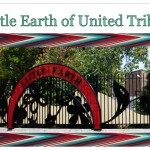By Ron Andrade June 21, 2007
Throughout the years there has been discussion among tribal leaders and representatives from organizations representing Indians from the off-reservation areas on how best to serve American Indian people living in the cities. Now in the last few years has come a new voice from, of all places, the Bush administration, claiming to know something about how best to serve Indians. During the Indian Health Care Improvement Act debates, the White House stated that funding should be eliminated for ”urban” Indian health centers and transferred to programs serving Indians living on or near the reservation. These two issues among others point out the total lack of understanding by the Bush administration and their supporters of the Indian community, as well as a lack of understanding of the cultural and bonds between those tribal people residing on and off the reservation.
The Los Angeles City/County Native American Indian Commission has been in existence for 30 years with one of its main purposes being to represent the needs of the nearly 200,000 American Indians who are tribal members from tribal communities throughout the country residing in the county. The commission represents the interests of these off-reservation tribal members and at the same time advocates with the city of Los Angeles and the county of Los Angeles to recognize that there is a special legal and political relationship that should be respected in working with the Indian community. The Indian commission has sought to maintain the relationship of the Indian person to their tribal community in any way it can assist.
Bush’s people need to understand there is no such thing as an urban Indian. There are tribal members living off the reservation who may live in the county of Los Angeles. Many of the Indians were brought to the city/county by the federal government and now you just can’t say “lets forget them, they should have stayed where they belonged.” The people on the reservation don’t speak of the urban Indians as strangers. They know them as their cousins, siblings or relations in the off-reservation area. When tribal conferences come to the cities the leaders will often ask for the local Indian groups to help with cultural or pow wow events. They know there is no separation between the tribal and off-reservation people. When cultural and tribal discussions occur, it only occurs when people like those in the White House try to create a division. Unfortunately, they sometimes will find a person who may claim to be an Indian leader who will agree.
And tribal and off-reservation people never speak of a “difference” between tribal and off-reservation, just as we don’t ponder the difference between “Anglo” and ”Saxon”; we recognize the off-reservation people are separate only by distance and that is all.
Which then leads to the other mistake of the White House: using the phrase “on or near” in order to restrict services.
Each Indian resident in Los Angeles lives ”on or near a reservation,” according to the government. In 1988 the Equal Employment Opportunity Commission stated “In defining ‘on or near an Indian reservation’ in identifying employers that may lawfully exercise the Indian preference exception, EEOC says it will adopt an OFCCP [Office of Federal Contract Compliance] definition stating that the use of the word near will ‘include all that area where a person seeking employment could reasonably be expected to commute to and from in the course of a work day.” The EEOC then indicated that the reasonable commute distance was 100 miles one way. There is no other federal agency that has defined ”on or near” as did the EEOC. Each of the ”urban” clinics is within 100 miles of a reservation so the White House needs to learn its own policies regarding “on or near.”
There have been great Indian leaders who challenged the White House when it tried to manufacture a difference between tribal and off-reservation tribal members. In an earlier time, Loretta Metoxin, a leader from the Oneida reservation in Wisconsin, when asked whether the tribe should help ”urban” Indians she responded, ”of course, these are our tribal members, family members, our children, and we would not like to see them sick or harmed.”
That has been among the roles of the Los Angeles Indian Commission: to protect those tribal members living in the county of Los Angeles. Maybe that is what the White House finally needs to learn: As members of our tribal societies, we will protect our tribal members despite where they may choose to live.
Ron Andrade is a member of the La Jolla Indian Tribe and was previously elected to the tribal council. He is director of the Los Angeles Indian Commission and former director of the National Congress of American Indians.
Last modified: March 27, 2012

